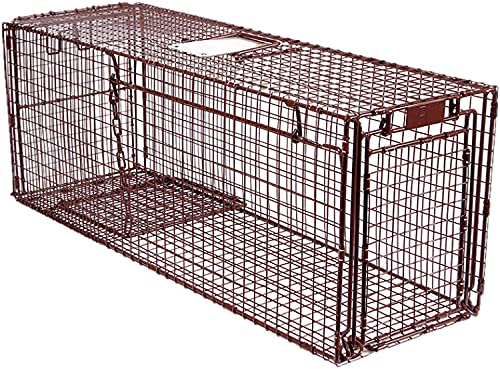



As an 8-year-old Scottish Fold, I have seen my fair share of changes in my life. It’s crucial to recognize that our emotional states can significantly influence our well-being. When we experience the loss of a companion, whether feline or human, the emotional toll can be profound. It’s important to observe signs of distress, such as changes in appetite, activity levels, or social behavior.
Supporting a grieving friend involves creating a comforting environment. Ensure they have a safe space to retreat to, along with familiar scents and objects. Engaging in gentle play or providing extra attention can help alleviate feelings of loneliness. It’s essential to monitor their health closely during this time, as stress can manifest in physical ways.
If signs of sorrow persist, seeking advice from a veterinarian can be beneficial. They can provide insights into behavioral changes and suggest ways to promote emotional recovery. Remember, while we may not express our feelings in the same way humans do, the impact of loss is very real for us.
Understanding the Impact of Loss on Felines
Yes, the emotional distress caused by losing a companion can significantly affect a feline’s health. Signs of this emotional turmoil might include changes in appetite, lethargy, or alterations in behavior. It’s critical to monitor these signs closely and take appropriate actions to alleviate their discomfort.
Signs of Emotional Distress
- Refusal to eat or drink
- Excessive vocalization
- Increased hiding or withdrawal
- Changes in grooming habits
- Disinterest in previously enjoyed activities
Steps to Support Your Feline
- Maintain a consistent routine: Familiarity can provide comfort.
- Offer extra affection: Spend more time together to help soothe their anxiety.
- Introduce new toys: Engaging them with fresh stimuli can redirect their focus.
- Consider a companion: If appropriate, adopting another pet may provide emotional support.
- Consult with a veterinarian: Professional advice may be necessary to address severe changes in health.
Addressing emotional well-being is just as important as physical health. Recognizing and responding to these changes promptly can make a significant difference in their recovery and happiness.
Recognizing Signs of Grief in Cats
Pay attention to any changes in behavior. If your feline friend becomes withdrawn, hiding more than usual or avoiding interaction, it might be a sign of emotional distress.
Monitor eating habits closely. A noticeable decrease in appetite or sudden weight loss can indicate that something is troubling your companion.
Watch for alterations in vocalization. Increased meowing or yowling may signal anxiety or a desire for comfort. Conversely, a sudden drop in vocal sounds can also be a red flag.
Observe grooming patterns. A previously well-groomed pet may neglect their fur, leading to matting or unkempt appearance, which can suggest they are struggling emotionally.
Look for changes in activity levels. Less playfulness or engagement in favorite activities can reflect a lack of interest stemming from emotional pain.
Keep an eye on litter box habits. Changes in bathroom behavior, such as increased urination or defecation outside the box, can be a sign of stress or discomfort.
If you notice these signs, consider providing extra attention, comfort, and reassurance. Creating a calm environment with familiar toys and bedding can help soothe their emotional state.
Impact of Grief on a Cat’s Health
Weight loss often occurs due to decreased appetite during tough emotional times. It’s crucial to monitor food intake closely. If you notice your furry friend eating less, consider offering enticing options like should cats eat raspberries to stimulate interest in food.
Behavioral changes can also signal distress. Increased hiding or vocalization may indicate that something is amiss. Engaging in regular playtime can help alleviate some of these symptoms and restore a sense of normalcy.
Physical health can deteriorate as stress levels rise. Conditions like urinary tract issues can emerge, often exacerbated by emotional turmoil. Ensure water intake remains adequate, as hydration plays a significant role in maintaining overall well-being.
It’s essential to maintain routine veterinary check-ups during these periods. A professional can provide guidance on managing stress and ensuring that health remains stable. Additionally, be cautious about household plants; for instance, check if are corn plants toxic to cats, as exposure to harmful substances can compound stress-related health issues.
Creating a comforting environment with familiar scents and soft bedding can help ease emotional strain. Regular affection and attention are key to supporting recovery during these challenging times.
Supporting a Grieving Cat: Practical Tips
Provide a quiet and safe space for your friend. Create a cozy corner with their favorite blanket and toys. This helps them feel secure during tough times.
Maintain Routine
Keep feeding and playtime consistent. Regular schedules can offer comfort, making it easier for them to adjust to changes.
Engage with Gentle Interactions
Spend quality time with soft petting and calm voices. Encourage them to approach you when they feel ready, reinforcing a sense of belonging and safety.
Consider interactive toys to stimulate their mind. Simple puzzles can engage them without overwhelming, providing a distraction from sadness.
Monitor their eating and drinking habits closely. If they show signs of not eating or drinking enough, consult a vet promptly for guidance.
Introduce calming products like pheromone diffusers or natural supplements. These can help ease anxiety and promote relaxation in their environment.
Encourage socialization with trusted companions. Having familiar faces around can be reassuring and help mitigate feelings of loneliness.
As an 8-year-old Scottish Fold, I have seen my fair share of changes in my life. It’s crucial to recognize that our emotional states can significantly influence our well-being. When we experience the loss of a companion, whether feline or human, the emotional toll can be profound. It’s important to observe signs of distress, such as changes in appetite, activity levels, or social behavior.
Supporting a grieving friend involves creating a comforting environment. Ensure they have a safe space to retreat to, along with familiar scents and objects. Engaging in gentle play or providing extra attention can help alleviate feelings of loneliness. It’s essential to monitor their health closely during this time, as stress can manifest in physical ways.
If signs of sorrow persist, seeking advice from a veterinarian can be beneficial. They can provide insights into behavioral changes and suggest ways to promote emotional recovery. Remember, while we may not express our feelings in the same way humans do, the impact of loss is very real for us.
Understanding the Impact of Loss on Felines
Yes, the emotional distress caused by losing a companion can significantly affect a feline’s health. Signs of this emotional turmoil might include changes in appetite, lethargy, or alterations in behavior. It’s critical to monitor these signs closely and take appropriate actions to alleviate their discomfort.
Signs of Emotional Distress
- Refusal to eat or drink
- Excessive vocalization
- Increased hiding or withdrawal
- Changes in grooming habits
- Disinterest in previously enjoyed activities
Steps to Support Your Feline
- Maintain a consistent routine: Familiarity can provide comfort.
- Offer extra affection: Spend more time together to help soothe their anxiety.
- Introduce new toys: Engaging them with fresh stimuli can redirect their focus.
- Consider a companion: If appropriate, adopting another pet may provide emotional support.
- Consult with a veterinarian: Professional advice may be necessary to address severe changes in health.
Addressing emotional well-being is just as important as physical health. Recognizing and responding to these changes promptly can make a significant difference in their recovery and happiness.
Recognizing Signs of Grief in Cats
Pay attention to any changes in behavior. If your feline friend becomes withdrawn, hiding more than usual or avoiding interaction, it might be a sign of emotional distress.
Monitor eating habits closely. A noticeable decrease in appetite or sudden weight loss can indicate that something is troubling your companion.
Watch for alterations in vocalization. Increased meowing or yowling may signal anxiety or a desire for comfort. Conversely, a sudden drop in vocal sounds can also be a red flag.
Observe grooming patterns. A previously well-groomed pet may neglect their fur, leading to matting or unkempt appearance, which can suggest they are struggling emotionally.
Look for changes in activity levels. Less playfulness or engagement in favorite activities can reflect a lack of interest stemming from emotional pain.
Keep an eye on litter box habits. Changes in bathroom behavior, such as increased urination or defecation outside the box, can be a sign of stress or discomfort.
If you notice these signs, consider providing extra attention, comfort, and reassurance. Creating a calm environment with familiar toys and bedding can help soothe their emotional state.
Impact of Grief on a Cat’s Health
Weight loss often occurs due to decreased appetite during tough emotional times. It’s crucial to monitor food intake closely. If you notice your furry friend eating less, consider offering enticing options like should cats eat raspberries to stimulate interest in food.
Behavioral changes can also signal distress. Increased hiding or vocalization may indicate that something is amiss. Engaging in regular playtime can help alleviate some of these symptoms and restore a sense of normalcy.
Physical health can deteriorate as stress levels rise. Conditions like urinary tract issues can emerge, often exacerbated by emotional turmoil. Ensure water intake remains adequate, as hydration plays a significant role in maintaining overall well-being.
It’s essential to maintain routine veterinary check-ups during these periods. A professional can provide guidance on managing stress and ensuring that health remains stable. Additionally, be cautious about household plants; for instance, check if are corn plants toxic to cats, as exposure to harmful substances can compound stress-related health issues.
Creating a comforting environment with familiar scents and soft bedding can help ease emotional strain. Regular affection and attention are key to supporting recovery during these challenging times.
Supporting a Grieving Cat: Practical Tips
Provide a quiet and safe space for your friend. Create a cozy corner with their favorite blanket and toys. This helps them feel secure during tough times.
Maintain Routine
Keep feeding and playtime consistent. Regular schedules can offer comfort, making it easier for them to adjust to changes.
Engage with Gentle Interactions
Spend quality time with soft petting and calm voices. Encourage them to approach you when they feel ready, reinforcing a sense of belonging and safety.
Consider interactive toys to stimulate their mind. Simple puzzles can engage them without overwhelming, providing a distraction from sadness.
Monitor their eating and drinking habits closely. If they show signs of not eating or drinking enough, consult a vet promptly for guidance.
Introduce calming products like pheromone diffusers or natural supplements. These can help ease anxiety and promote relaxation in their environment.
Encourage socialization with trusted companions. Having familiar faces around can be reassuring and help mitigate feelings of loneliness.
As an 8-year-old Scottish Fold, I have seen my fair share of changes in my life. It’s crucial to recognize that our emotional states can significantly influence our well-being. When we experience the loss of a companion, whether feline or human, the emotional toll can be profound. It’s important to observe signs of distress, such as changes in appetite, activity levels, or social behavior.
Supporting a grieving friend involves creating a comforting environment. Ensure they have a safe space to retreat to, along with familiar scents and objects. Engaging in gentle play or providing extra attention can help alleviate feelings of loneliness. It’s essential to monitor their health closely during this time, as stress can manifest in physical ways.
If signs of sorrow persist, seeking advice from a veterinarian can be beneficial. They can provide insights into behavioral changes and suggest ways to promote emotional recovery. Remember, while we may not express our feelings in the same way humans do, the impact of loss is very real for us.
Understanding the Impact of Loss on Felines
Yes, the emotional distress caused by losing a companion can significantly affect a feline’s health. Signs of this emotional turmoil might include changes in appetite, lethargy, or alterations in behavior. It’s critical to monitor these signs closely and take appropriate actions to alleviate their discomfort.
Signs of Emotional Distress
- Refusal to eat or drink
- Excessive vocalization
- Increased hiding or withdrawal
- Changes in grooming habits
- Disinterest in previously enjoyed activities
Steps to Support Your Feline
- Maintain a consistent routine: Familiarity can provide comfort.
- Offer extra affection: Spend more time together to help soothe their anxiety.
- Introduce new toys: Engaging them with fresh stimuli can redirect their focus.
- Consider a companion: If appropriate, adopting another pet may provide emotional support.
- Consult with a veterinarian: Professional advice may be necessary to address severe changes in health.
Addressing emotional well-being is just as important as physical health. Recognizing and responding to these changes promptly can make a significant difference in their recovery and happiness.
Recognizing Signs of Grief in Cats
Pay attention to any changes in behavior. If your feline friend becomes withdrawn, hiding more than usual or avoiding interaction, it might be a sign of emotional distress.
Monitor eating habits closely. A noticeable decrease in appetite or sudden weight loss can indicate that something is troubling your companion.
Watch for alterations in vocalization. Increased meowing or yowling may signal anxiety or a desire for comfort. Conversely, a sudden drop in vocal sounds can also be a red flag.
Observe grooming patterns. A previously well-groomed pet may neglect their fur, leading to matting or unkempt appearance, which can suggest they are struggling emotionally.
Look for changes in activity levels. Less playfulness or engagement in favorite activities can reflect a lack of interest stemming from emotional pain.
Keep an eye on litter box habits. Changes in bathroom behavior, such as increased urination or defecation outside the box, can be a sign of stress or discomfort.
If you notice these signs, consider providing extra attention, comfort, and reassurance. Creating a calm environment with familiar toys and bedding can help soothe their emotional state.
Impact of Grief on a Cat’s Health
Weight loss often occurs due to decreased appetite during tough emotional times. It’s crucial to monitor food intake closely. If you notice your furry friend eating less, consider offering enticing options like should cats eat raspberries to stimulate interest in food.
Behavioral changes can also signal distress. Increased hiding or vocalization may indicate that something is amiss. Engaging in regular playtime can help alleviate some of these symptoms and restore a sense of normalcy.
Physical health can deteriorate as stress levels rise. Conditions like urinary tract issues can emerge, often exacerbated by emotional turmoil. Ensure water intake remains adequate, as hydration plays a significant role in maintaining overall well-being.
It’s essential to maintain routine veterinary check-ups during these periods. A professional can provide guidance on managing stress and ensuring that health remains stable. Additionally, be cautious about household plants; for instance, check if are corn plants toxic to cats, as exposure to harmful substances can compound stress-related health issues.
Creating a comforting environment with familiar scents and soft bedding can help ease emotional strain. Regular affection and attention are key to supporting recovery during these challenging times.
Supporting a Grieving Cat: Practical Tips
Provide a quiet and safe space for your friend. Create a cozy corner with their favorite blanket and toys. This helps them feel secure during tough times.
Maintain Routine
Keep feeding and playtime consistent. Regular schedules can offer comfort, making it easier for them to adjust to changes.
Engage with Gentle Interactions
Spend quality time with soft petting and calm voices. Encourage them to approach you when they feel ready, reinforcing a sense of belonging and safety.
Consider interactive toys to stimulate their mind. Simple puzzles can engage them without overwhelming, providing a distraction from sadness.
Monitor their eating and drinking habits closely. If they show signs of not eating or drinking enough, consult a vet promptly for guidance.
Introduce calming products like pheromone diffusers or natural supplements. These can help ease anxiety and promote relaxation in their environment.
Encourage socialization with trusted companions. Having familiar faces around can be reassuring and help mitigate feelings of loneliness.









